Table of Contents
To begin this celebration of important journalism created by writers and photographers who received Alicia Patterson Foundation grants, we are featuring a prescient article written by fellow Marc Reisner. Marc’s work on America’s water resources became the nexus of his influential 1993 book, “Cadillac Desert: The American West and its Disappearing Water,” a definitive book on the West’s water crisis that continues to be cited and read.
As Farhad Manjoo wrote in The New York Times last January 23rd,
As Farhad Manjoo wrote in The New York Times last January 23rd,
“I’ve been thinking a lot about Cadillac Desert in the past few weeks, as the rain fell and fell and kept falling over California, much of which, despite the pouring heavens, seems likely to remain in the grip of a severe drought. Reisner anticipated this moment. He worried that the West’s success with irrigation could be a mirage — that it took water for granted and didn’t appreciate the precariousness of our capacity to control it.”

Orville Schell, an APF fellow in 1980, currently is the Arthur Ross Director of the Center on U.S. – China Relations at the Asia Society in New York City. Earlier, he was the dean of the University of California – Berkeley Graduate School of Journalism. He is the author of 15 books, ten of them about China, and is a longtime journalist for The New Yorker, Atlantic Monthly and The New Republic. He won a Guggenheim Fellowship for the Creative Arts and worked on documentaries for PBS and Frontline.
During his APF year, he researched the U.S. meat industry’s reliance on drugs. Four years later, he produced the book, “Modern Meat: Antibiotics, Hormones, and the Pharmaceutical Farm.”
The following article, on how an overworked USDA inspector tries to keep contaminated meat from reaching consumers, first ran in the APF REPORTER magazine on November 28, 1980.
During his APF year, he researched the U.S. meat industry’s reliance on drugs. Four years later, he produced the book, “Modern Meat: Antibiotics, Hormones, and the Pharmaceutical Farm.”
The following article, on how an overworked USDA inspector tries to keep contaminated meat from reaching consumers, first ran in the APF REPORTER magazine on November 28, 1980.
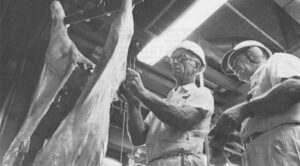
Susan Brownmiller, an APF fellow in 1973, was one of the first writers to examine the sexist manner in which the crime of rape was handled. Her research led to her 1975 ground-breaking book, “Against Our Will: Men, Women, and Rape,” which the New York Public Library listed as one of the 100 most important books of the 20th century. She had begun her work on sexual violence in 1971, when she helped organize the New York Radical Feminists Speak-Out on Rape and a conference on rape that same year. Her report (below) on media treatment of rape helped expose the selectivity and sexism by media and police in how crimes of sexual violence were treated.
David Burnham, an APF fellow in 1987, illuminated the Internal Revenue Service’s own data to show the government intentionally audited far more Americans of modest means and let the rich escape scrutiny. Despite the agency’s statistics showing the benefit of auditing the rich, tax employees were not deployed equitably across the taxpayer landscape. Further, there were huge geographic disparities – whether you’re audited depends a great deal on where you live.
Burnham, a former reporter for The New York Times, expanded his research under his Alicia Patterson foundation grant into a book. “A Law Unto Itself: Power, Politics, and the IRS” was published by Random House in 1989. It prompted Congress to investigate the abuses and bureaucratic lapses of the agency that affects nearly every American life.
Burnham, a former reporter for The New York Times, expanded his research under his Alicia Patterson foundation grant into a book. “A Law Unto Itself: Power, Politics, and the IRS” was published by Random House in 1989. It prompted Congress to investigate the abuses and bureaucratic lapses of the agency that affects nearly every American life.
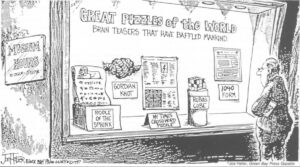
Wil Haygood researched the life of Adam Clayton Powell Jr. during his fellowship year. Four years later, Houghton Mifflin published his Powell biography, “King of the Cats: The Life and Times of Adam Clayton Powell Jr.” His other biographies of notable 20th century figures include: “Showdown: Thurgood Marshall and the Supreme Court Nomination that Changed America,” “Black and White: The Life of Sammy Davis Jr.,” and “Sweet Thunder: The Life and Times of Sugar Ray Robinson.” In 2008, as a Washington Post reporter, he wrote “A Butler Well Served by This Election,” about a long-serving butler in the White House, now working for America’s first Black president. The article was the basis for the 2013 film, “The Butler” directed by Lee Daniels and starring Forest Whitaker and Oprah Winfrey. In 2018, Haygood wrote about an exceptional sports season in his hometown of Columbus, Ohio. “Tigerland: 1968-69: A City Divided, a Nation Torn Apart, and a Magical Season of Healing” detailed the Tigers of segregated East High School’s improbable wins of both the state basketball and baseball championships. Wil is now a scholar in residence at his alma mater, Miami University in Oxford, Ohio.
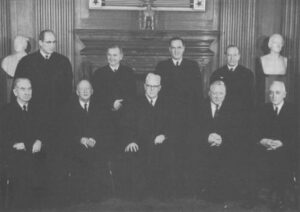
Laura Parker, a writer for USA TODAY on leave during her Patterson year, was a reporter on the national desk of The Washington Post and later an editor and writer for National Geographic, covering climate change and water issues.
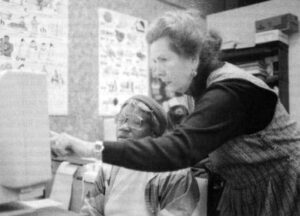
Pamela Constable, a 1989 Fellow, took leave from the Boston Globe, to examine Chile during the Pinochet years.
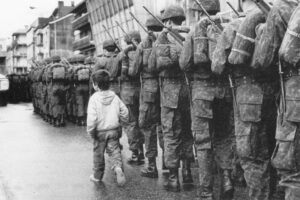
Doug Foster, then a freelance writer in Berkeley, California, examined animal behavior research during his Patterson year. He went on to edit Mother Jones magazine, worked as an investigative reporter for KQED public television station, produced documentaries and authored, “After Mandela: The Struggle for Freedom in Post Apartheid South Africa.” He is now a professor at Northwestern University’s Medill School of Journalism, where he teaches feature writing and advises its Journalism Residency Program in South Africa and the student chapter of the National Lesbian and Gay Journalists Association.
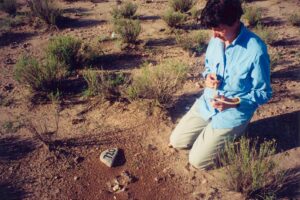
Theo Emery researched the birth of the U.S. Chemical Warfare Service under his Alicia Patterson fellowship. In 2017, Little Brown published his book, “Hellfire Boys,” a narrative history of the Service in World War I. His freelance writing has appeared in The New Yorker online, Time, Politico, The Guardian, Smithsonian, The Washington Post and Boston Globe. Theo also edits and collaborates on book projects.
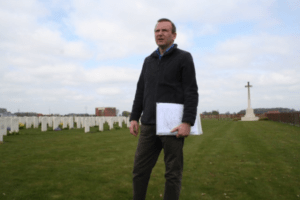
Nina Bernstein, then a reporter for Newsday, investigated foster care in America during her Patterson year. Her book, “The Lost Children of Wilder: The Epic Struggle to Change Foster Care” was published in 2001 by Pantheon Books. She joined the staff of The New York Times in 1995, covering immigration, child welfare, health care and other social and legal issues. She was part of a team that won a Pulitzer Prize in 2009 for coverage of the scandal that caused the governor of New York to resign.
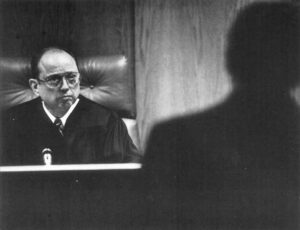
Colman McCarthy researched literacy efforts at a Washington, D.C. elementary school during his fellowship year. A former columnist for The Washington Post, he has taught peace studies at colleges and high schools for more than 35 years. He is the author of ten books, including “Opening Minds, Stirring Hearts” and “All of One Peace.”
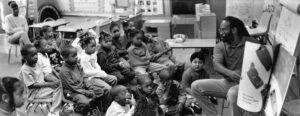
Esther Kaplan examined the high cost of speed in American workplaces during her APF fellowship. She has worked at the Center for Investigative Reporting, the Village Voice and The Nation. Earlier, she was the features editor of Poz, the national AIDS magazine and communications director at Communications Workers of America Local 1180. She was editor-in-chief of Type Investigations, where she was part of teams that won Peabody and IRE awards and three Emmys. At WBAI radio in New York City, she hosted “Beyond the Pale,” a weekly program on Jewish culture and politics. She wrote “With God on Their Side: George W. Bush and the Christian Right.” She is the investigations editor at Insider, an online newspaper focused on investigative journalism.

Kai Bird was a foreign affairs columnist on leave from The Nation, when he investigated the U.S. Foreign Service during his Alicia Patterson fellowship year. He has gone on to write biographies of McGeorge Bundy and William Bundy, John J. McCloy, CIA officer Robert Ames, and former President Jimmy Carter. He and co-author Martin J. Sherwin won the Pulitzer Prize for their biography “American Prometheus: The Triumph and Tragedy of J. Robert Oppenheimer,” which was the basis for the Oscar-winning movie, “Oppenheimer.” He has written extensively on the atomic bombings of Hiroshima and Nagasaki and U.S.-Middle East politics. He is the executive director of the Leon Levy Center for Biography in New York City.
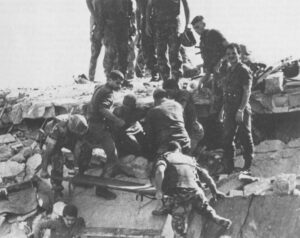
Roger Atwood was a freelance writer in Washington, D.C. when he examined the looting of the ancient world during his Patterson fellowship. He went on to write, “Stealing History: Tomb Raiders, Smuggler, and the Looting of the Ancient World.” (Macmillan Publishers). He is a contributing editor at Archaeology magazine.
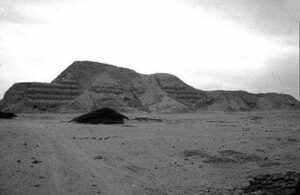
Melba Newsome reported on climate displacement and people of color during her Alicia Patterson fellowship year.
This article was part of “Innovations In: Environmental Health Equity” an editorially independent special report that was produced with financial support to Scientific American from Takeda Pharmaceuticals.
This article was part of “Innovations In: Environmental Health Equity” an editorially independent special report that was produced with financial support to Scientific American from Takeda Pharmaceuticals.

T. R. Reid, a former national reporter for the Washington Post, investigated the U.S. semiconductor industry during his fellowship year. His book, “The Chip: How Two Americans Invented the Microchip and Launched a Revolution,” was published two years later, in 1984. Tom has gone on to write seven additional books, produced documentary films and is a frequent guest on National Public Radio. He has written for the Wall Street Journal, AARP Magazine, The Denver Post and many other outlets. He lives in Denver, CO.

Jill Freedman, a freelance photographer then based in Miami, spent her Patterson year documenting the Holocaust, 50 years later. She worked most of her life in New York City, documenting street life. Seven books were published of her photographs of the Poor People’s Campaign in 1968, New York firefighters, circus performers, street cops, Ireland and dogs. Her work is in the permanent collections of the Museum of Modern Art, the International Center of Photography, the Smithsonian American Art Museum and the New York Public Library, among others. She died in 2019. A documentary film has been made of her life.
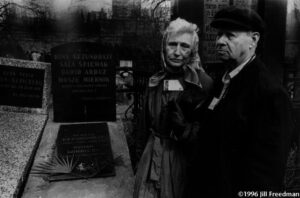
Mary Kane, now senior editor at the News Literacy Project, a nonpartisan education nonprofit. She focused on predatory finance firms and financial literacy during her fellowship year.

Ken Ward Jr. currently is a distinguished fellow in ProPublica’s Local Reporting Network, where he worked on stories about West Virginia’s natural gas industry and the questionable business empire of West Virginia governor Jim Justice. A 2018 recipient of a MacArthur Fellowship, the so-called “genius” grant – he co-founded the Mountain State Spotlight, a nonprofit news organization. He was an environmental and investigative reporter for the Charleston Gazette and Gazette-Mail. Ken focused on the West Virginia coal industry during his APF fellowship.
Noé Montes is based in Southern California and creates documentary work around a social issue or geographic location. He uses the work as a tool for community engagement through exhibits, workshops, and community dialogues. During his Patterson fellowship, Noé examined the lives of farm workers in the Coachella Valley.

Dorothea Jackson, an APF fellow in 1991, was a freelance writer in Six Mile, SC, examining the condition of the Southern Highlands.
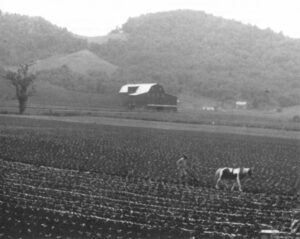
Diane Granat, a longtime writer for Washingtonian Magazine, researched the life of Julius Rosenwald during her Patterson fellowship. Granat, a three-time finalist for a National Magazine Award, died of a brain tumor on Aug. 25, 2004 at age 49. A Medill School of Journalism graduate of Northwestern University, she covered in-depth stories on education, housing, politics and economic development. She wrote for The Washington Post, Congressional Quarterly Weekly Report and the Daily Herald in Arlington Heights, IL, which sent her to Washington as its correspondent. She also won awards from the Society of Professional Journalists and the Education Writers Association.
Jeff Fleischer, a Chicago journalist and author, spent his fellowship year reporting on the fate of the remote Pacific atoll of Tuvalu, the nation most susceptible to being overtaken by elevating sea levels.
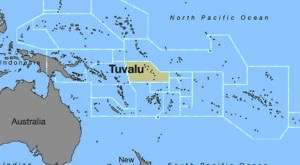
Miriam Paweł examined the farm labor movement during her fellowship year. Her 2009 book, “The Union of Their Dreams – Power, Hope and Struggle in Cesar Chavez’s Farm Worker Movement,” was partly based on that research. In 2014, she wrote “The Crusades of Cesar Chavez – A Biography,” which won the 2015 Robert F. Kennedy Book Award and was a finalist for a National Book Critics Circle Award. In 2018, her book “The Browns of California – the Family Dynasty that Transformed the State and Shaped the Nation” was published. She is a contributing opinion writer for The New York Times.
Stephanie Hanes researched the challenges of American aid in Africa during her fellowship year. Her 2017 book, “White Man’s Game: Saving Animals, Rebuilding Eden, and Other Myths of Conservation in Africa” included her APF research. She is a correspondent for The Christian Science Monitor on the environment and climate change. Her work has appeared in The Washington Post, USA TODAY, The Baltimore Sun, Smithsonian Magazine and other venues. She teaches at Yale University’s School of the Environment and at The College of William & Mary.
Writer Emily MacFarquhar researched the life and career of Benazir Bhutto during her fellowship year. A writer who focused on China and South Asia, she contributed expert articles for more than two decades to The Economist. The magazine published her policy booklet, “China: Mao’s Last Leap.” Earlier in her career, she worked for British television and U.S. News & World Report. She died in March, 2001 at her home in Cambridge, MA.
Scott Warren, a photographer based in Durango, CO., examined the life of the Khanty of northwestern Siberia. He has written and photographed the outdoors for Smithsonian, Outside, and Audubon magazines.
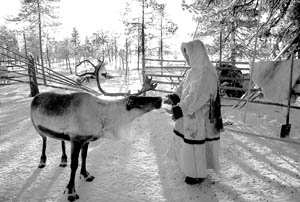
Donald Baker, a longtime reporter and editor at Washington Post, examined the experience of schools since Brown v. Board of Education during his fellowship year. A journalist who wrote for newspapers in Indiana and Ohio, Baker served for years as the Post’s bureau chief in Richmond. He wrote a biography of L. Douglas Wilder, the country’s first black elected governor. Baker also did extensive research and writing on the educational disaster when Virginia’s Prince Edward County shut down schools rather than integrate. Baker died on Christmas day, 2022 at age 90.
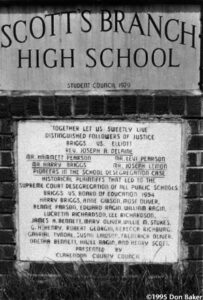
Wayne Biddle, a freelance writer, reported on defense spending from World War I onwards during his fellowship year. He won a Pulitzer Prize for his New York Times reporting on the “Star Wars” anti-missile project. He has written six nonfiction books – on Wernher von Braun, field guides to radiation and germs, a history of the American aerospace industry and an examination of scientific terms. He has written extensively for major magazines and taught writing seminars at the Johns Hopkins University until his retirement in 2019.

Fred Schulte, who was the investigative editor for the Ft. Lauderdale Sun-Sentinel, examined the government’s move towards managed health care during his fellowship year. He later was a reporter for the Baltimore Sun and the Center for Public Integrity. He is a four-time Pulitzer Prize finalist for health stories covering high surgical death rates in veterans’ hospitals, poor insurance coverage for low-income patients, and deaths from cosmetic surgeries in doctor’s offices. Currently, he is the senior correspondent for the Kaiser Family Foundation Health News.
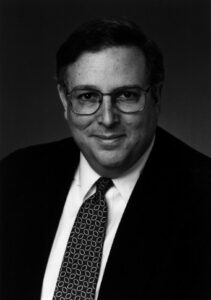
Kat McGowan is a California-based journalist with a background in science and health reporting. She is now concentrating on world of caregiving, an endeavor that affects some 53 million Americans, yet is virtually invisible despite being the nation’s largest healthcare workforce.

